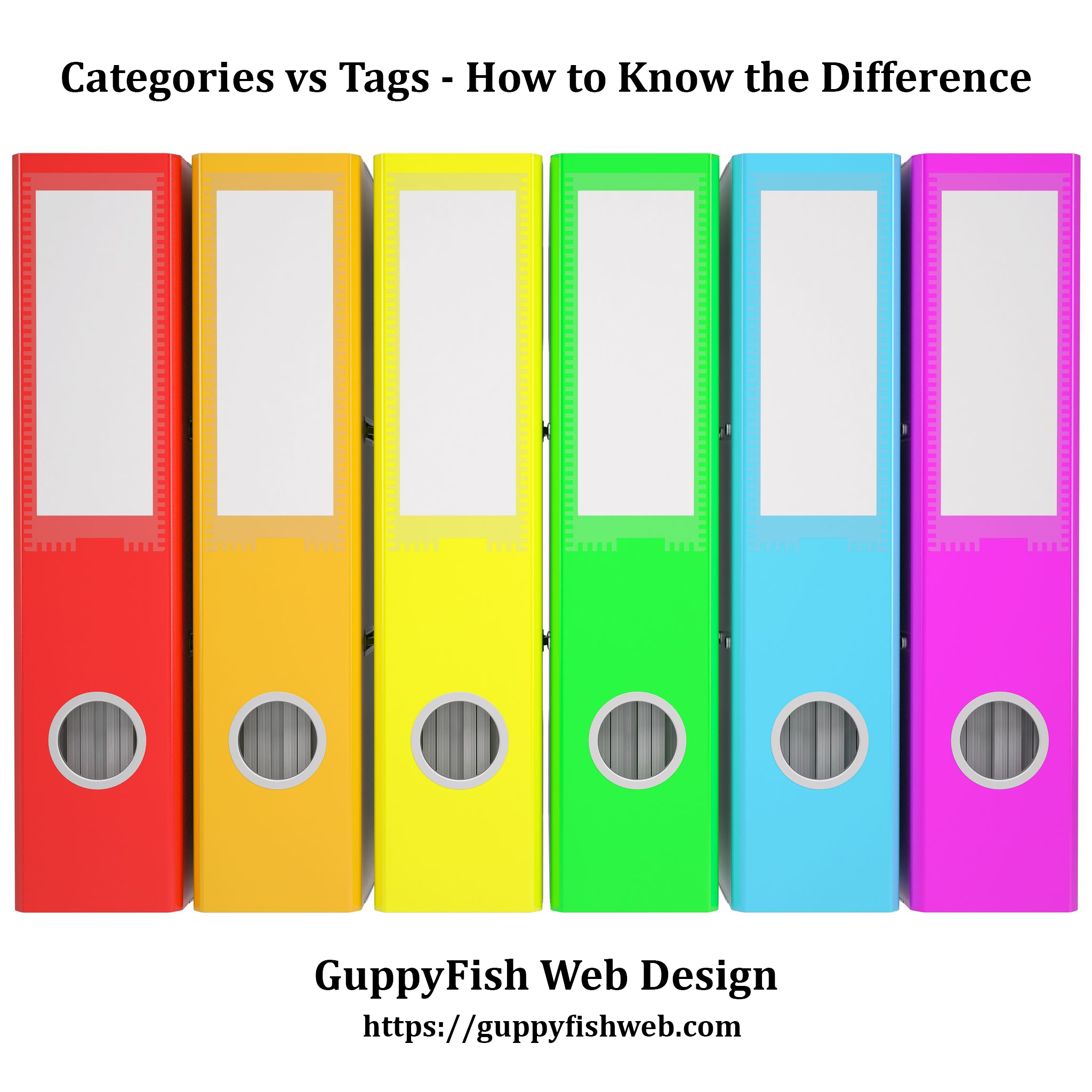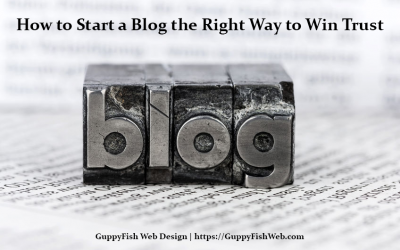I have several clients who blog, and I probably am not as effective as I should be in explaining to them categories vs tags and the difference between the two. Additionally, they can be important in helping search engines find you and aiding visitors in navigating your website.
Categories vs Tags – Which Is Which?
If you use WordPress for blogging, or pretty much any other blogging program for that matter, you’ll see a place to indicate which category or tag to assign to your current post. We’ve already discussed how blogging can help SEO. Classifying your content into categories and tags gives you and your keywords an even more valuable boost. However, since so many people don’t know what to do with them, many ignore them completely.
Categories
Categories should be very broad, and you should probably not have too many. They should encompass the different areas of your organization or services you offer. For example, my blogging categories include Web Design, Blogging, Social Media, Email Marketing and SEO. I also have a category for posts that I want to go in my portfolio. It’s a good idea to use your main SEO keywords as categories, as it will help you rank higher for those terms.
Additionally, categories can help you organize your content. If a user reads a post in one category and likes it, he or she can click on the category name and view others in the same category. Even better is that you can often designate a page where posts from a certain category will go. You win by getting more of your information in front of your readers!
Tags
Tags are similar, yet different. Ok, that was not helpful. Tags also help you organize content but are much more specific. For example, if I create a post in the category of Social Media, I’ll create tags based on the content such as Twitter, Facebook, Hashtags or anything else I’ve discussed in the post. Tags are similar to categories in that they can help readers find related information. If I’ve used Twitter as a tag on the post mentioned before, a visitor could click on that tag to see anything else I’ve written about Twitter. The main difference with organization is that, unlike with categories, it’s much more difficult to populate a single page with posts containing a certain tag.
A Categories vs Tags Analogy
In a podcast I heard recently, the speaker likened categories vs tags to a cookbook. Your categories are like your main chapters, and your tags are like your variations within that chapter. Categories would be like Appetizers, Main Courses, Desserts, Side Dishes, etc. Then your tags would fall within those categories. In the Side Dishes chapter, you’ll find sections for fruits, salads, potatoes, etc… those would be the tags.
I like to think of them like an online catalog. If you go shopping online at Old Navy, for example, the top of the site will have Men, Women, Boys, Girls, Babies and so on, which would be your categories. Within those departments you’ll have shirts, dresses, bathing suits, etc. that would serve as tags.
Whichever analogy you prefer, you can use both categories and tags to your advantage. They will help your SEO, organize your content, and keep your visitors at your site wanting to read more.
I hope this clears up the categories vs tags question… keep swimming along!




0 Comments